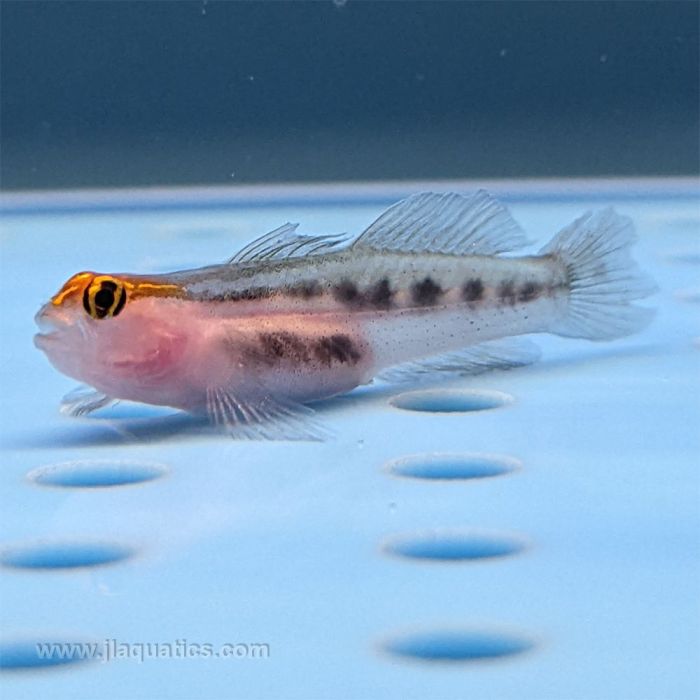Redhead Goby (Tank Raised)
The Redhead goby is an adorable little fish with, as the name implies, has a ruby red color on its forehead. Within the red are streaks of electric color which shimmer yellow or blue depending on how the light hits them. These streaks wrap around its eyes and extend to its shoulder. Its body is a dusty olive color with contrasting dark spots in a row from its shoulder to its tail. Under those spots is a streak of the same dark shade. Males and females are visually identical. It grows up to 2 inches; we recommend an aquarium 10 gallons or larger.
Gobies are small, peaceful fish which spend most of their day hopping in and around the rockwork and corals in an entertaining manner. They feel most secure in an aquarium with plenty of live rock and caves.
We recommend the tank be securely covered as gobies may be prone to jumping from open top aquaria. They are typically peaceful with all other types of fish and invertebrates.
Gobies are primarily carnivores and their diet should include plenty of high quality meaty items, marine algae, Spirulina, and frozen Mysis shrimp. It is preferable to feed at least twice a day and to let some food land on the bottom of the aquarium. Frozen food is best, however in time they may learn to eat dry foods.
They are always alert, watching for a drifting morsel of food; when they spot one they dart out quickly to snatch it up. They are also watching for predators- they should never be kept with large fish as the goby's small size makes it a target for many fish, even those who don't normally eat other fish. Dottybacks, cardinals, sleeper gobies and hawkfish should be strictly avoided.
As one of the largest families of fish there are near countless varieties of gobies which inhabit every different niche on the reef. They are coral safe and typically quite active and friendly with other fish. They have the ability to change sex to form pairs, although they don't always do so. Most gobies are imported from the Philippines.
Gobies are diminutive fish typically with elongated bodies, and as such we do not recommend any aggressive or large-mouthed fish to be kept with them; this includes all groupers, snappers, sweetlips, soapfish, lionfish, eels, goatfish, anglers/frogfish, leaf fish, etc.
















